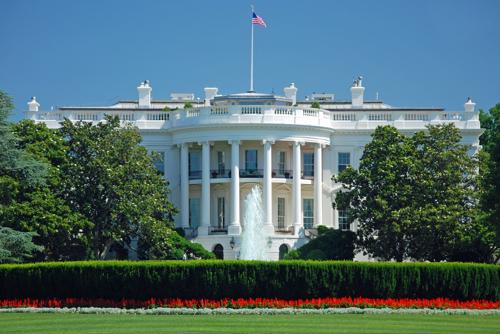Before political figures have a chance to begin coordinating their campaigns and officially declare their candidacy, a different type of political action committee is already up and running.
Draft committees – PACs and super PACs dedicated to enticing a non-candidate to run – are already raising money in support of their chosen leaders. While some of these PACs are facing challenges from the Federal Election Commission and possibly from the political figures that they represent, this type of committee may get help from new FEC regulations.
Nomenclature blues
The "Ready for _" meme appears to be a popular PAC type this year. The Ready for Hillary PAC is perhaps the best known, but there is also a Ready for Warren PAC and a Ready for Romney PAC working to draft Sen. Elizabeth Warren and former candidate Mitt Romney into the race, respectively.
Ready for Warren has experienced serious struggles with fundraising after the Massachusetts senator chose to disavow it.
There is a downside to running without the blessing of your chosen candidate however, and that comes in the form of more stringent FEC regulations. According to the FEC website, Ready for Warren PAC received a letter late last year from the FEC explaining that only committees authorized by a federal political candidate are permitted to use the name of that candidate in their own name.
"You must amend your statement of organization to change the name of your political committee so that it does not include the candidate's name and/or provide further clarification regarding the nature of your committee," FEC campaign finance analyst Romy Adame-Wilson told the super PAC, in a request for additional information.
In response, Ready for Warren PAC chose to amend its registration paperwork and officially become the "Ready for Warren Presidential Draft Campaign."
This choice is in keeping with an exemption in FEC regulations stating that political committees established solely to draft individuals may include the name of that individual in their name provided that the name also clearly indicates that it is a draft committee.
Nonetheless, Politico reported in the last month of the year that Ready for Warren has experienced serious struggles with fundraising after the Massachusetts senator chose to disavow it. In this case, and in light of the numerous claims Warren has made that she is not running, it seems reasonable to start actually believing her. Still, there are other efforts to draft the Senator underway, including one spearheaded by MoveOn, a progressive 501(c)(4) organization, which is having more success.

New FEC rules incoming
Despite this warning, the FEC is poised to make a ruling that could seriously benefit draft committees. On Jan. 15, the Commission is scheduled to vote on a series of guidelines that would give groups like the "Ready for" trio more freedom in how they raise their money and how they spend it, according to National Journal.
"Groups could solicit donations for a candidate fitting certain criteria, like 'the first female president.'"
The FEC is revisiting its rules on draft committees following a request by ActBlue, a leading online fundraising platform for Democratic candidates, for more clarity on its guidelines in this area, the news source explained. Currently, draft groups are permitted to raise money for a prospective candidate and give that money to the candidate's campaign should he or she decide to run before a deadline set by the draft group.
Under the guidelines that most expect the FEC to approve, draft committees would have more freedom in terms of how they can spend money should their candidate decide not to run, National Journal explained. For example, draft groups could promise donors that, should their chosen candidate not join the race, donations will instead go to a second-choice candidate. Warren supporters might feel more confident making a donation if they know that their money will go to Sen. Bernie Sanders, for example, should Warren decide not to run. Similarly, groups could solicit donations for a candidate fitting certain criteria, like "the first female president," meaning that donations could be routed to any successful female nominee. Draft groups would also have more freedom in choosing the deadline for their candidate to enter the race.
The FEC will also consider Commission Chair Ann Ravel's proposal that the organization consider disclosure rules for communications on the Internet that would require disclosure if they ran on other media, according to The Sacramento Bee. We will have to wait and see whether the FEC chooses to move forward with considerations of new regulations.
As the year moves forward, the early whiffs of election fever are already clearly present. It will be a long road to 2016, and despite the popularity of some potential candidates being targeted by draft committees on both sides of the aisle, it will be a while yet before we know who is really running.

